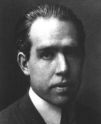|
Honj Steak posted:Training your performance skills is more than controlling nervousness. It's amongst others the ability to adapt to different room situations, to interact with the audience and to pace yourself over the course of a longer rehearsal. All these things are best learned just by doing it. You don't get to practice any aspects of performance if the pieces you are playing are too far above your level. You can't effectively learn these things at all. heap posted:Realistically, the only place where what you're describing happens is in the academic world, which is pretty unrepresentative of working life. That is what I was referring to, but was far from clear about it. My bad. quote:Also, you're a pianist, and if you know any piano accompanists worth their salt you know they have plenty of performances, playing pieces of all levels, shapes and sizes. Performance isn't always about "you" the player. I completely agree - performing isn't for you at all. That's why I despise performing poor quality work - only the audience and the music matters. I have too much respect for this to muck it up anymore. quote:Like Honj pointed out, you're trying to talk about the "current system" but really you're just talking about your own classes. Where I studied (and where everyone I know studied), we had weekly studio classes where everyone performed something, anything, in front of their peers. In my applied class, I got to perform twice in the semester. There were a handful of other opportunities that I took, but nothing I played was really ready for it and so I didn't learn much except how miserable it feels to muck up beautiful music. But they were necessary for other reasons so I accept those with much sadness. CowOnCrack fucked around with this message at 21:11 on May 4, 2014 |
|
|
|

|
| # ? Apr 28, 2024 13:50 |
|
I've always wanted to learn the violin, but I until recently I've never really had the time or money to give it the dedication I'd like. Now that I have the chance, I'm curious if there's a best way to go about it. I'm guessing renting one and taking lessons is preferable to buying a violin outright? And for someone with zero musical background at all, is there a certain level I need to be at before I start taking lessons? Like I have no idea how to read music or anything. Finally, provided I'm serious about learning, how long would it likely take to get to a level where I can play things that don't sound awful? I know this is a pretty subjective question and a lot of it depends on how much effort I put into it, but is there kind of average ballpark time frame? Not that I'm in a rush or anything, just kind of curious.
|
|
|
|
violin, and to a lesser extent viola and cello, are kind of special in that they sound absolutely godawful until you are pretty good at it, in particular due to the lack of frets. I've heard people who's played for years whose intonation is still garbage, so even if they can technically play some fancy stuff, it just sounds like total poo poo. Incidentally this is why I will encourage my kids to play an instrument, but no violin will ever enter my house. so, you know, violin is beautiful and the undisputed king of classical music and all that. but save your sanity - and show your neighbors and loved ones mercy - and pick something else. guitar, piano, flute, the loving harp, or whatever, doesn't matter, playing music at any level is fun and rewarding If you absolutely insist on violin, get a teacher ASAP, and if you can rent/borrow a decent instrument it's probably a good idea as they are, as you say, pricy e: "not sounding awful" is probably going to take at least a few years mainly due to intonation issues, unless you are unusually focused, have a high tolerance for boring technical/intonation exercises, and have a really good ear L. Ron Mexico fucked around with this message at 11:22 on May 3, 2014 |
|
|
|
I managed to pass my school's piano proficiency a year early, so I'm pretty happy about that. I played my jury pieces well (Bach prelude in D minor, Chopin prelude in e mnior, and Schubert waltz in C) and now I'm moving on to my summer repertoire - so far I've been given Schubert Waltz in a minor, Mozart Sonata No. 1 in C, and Bach's two part invention in C. The goal by the end of the summer is to do all the inventions, so I'm pumped for it. On the singing side, it's May term, and this year I'm doing opera scenes; we get assigned certain scenes that we have to memorize and stage by the end of the May term. I've been cast as Camille in the Act II Finale of The Merry Widow, Don Curzio in the sextet from Le Nozze di Figaro, Nemorino in Act I Scenes 8-9 of L'elisir d'more, Ralph in No.11 from HMS Pinafore, and one of Tabor's cronies in The Ballad of Baby Doe Act I Scene 2. All of those have to be performance ready and staged by May 20th. It's ganna be a busy month. I love it all but it's so much! Hoshi fucked around with this message at 02:20 on May 4, 2014 |
|
|
|
Godsped posted:Chopin prelude in e mnior gently caress that loving fuckety thing. No piece has ever made me rage like that prelude.
|
|
|
|
L. Ron Mexico posted:e: "not sounding awful" is probably going to take at least a few years mainly due to intonation issues, unless you are unusually focused, have a high tolerance for boring technical/intonation exercises, and have a really good ear It's funny, because I absolutely agree with you, but a person who has a bad enough ear to actually sound awful because of intonation issues is probably not even going to realize they sound awful. If you asked my beginning violin students how they think they sound, they would all say some variation on "awesome" even though three of them can't play in tune to save their life. It's all blissful ignorance until you play long enough to develop an ear.
|
|
|
|
Hawkgirl posted:It's funny, because I absolutely agree with you, but a person who has a bad enough ear to actually sound awful because of intonation issues is probably not even going to realize they sound awful. If you asked my beginning violin students how they think they sound, they would all say some variation on "awesome" even though three of them can't play in tune to save their life. It's all blissful ignorance until you play long enough to develop an ear. This is true to an extent - I'm currently working on intonation issues in the third octaves of my scales that I barely notice to play them straight through, but my teacher notices instantly and my tuner backs her up. My ear is so poorly trained up at that range that it sounds out of tune (flat) when I play it correctly! That said, I agree with most of what L. Ron Mexico said. Violin is not an instrument to casually take up late in life unless you have a lot of patience and can keep your expectations low. And yes, get a teacher before you even start to put bow to string.
|
|
|
|
Tomorrow is my first large professional/international competition. If you want a Goon to succeed, cross your fingers! 
Honj Steak fucked around with this message at 21:57 on May 9, 2014 |
|
|
|
Honj Steak posted:Tomorrow is my first large professional/international competition. If you want a Goon to succeed, cross your fingers! Best of luck! I've never competed internationally, but I know competitions in general are tough as poo poo. Fingers will be crossed! On a side note, I realize I never reported back after my first ever opera experience. For those who don't know, 2 weeks ago I was able to play in my first opera: a chamber version of Britten's Turn of the Screw. I wasn't sure if I'd hate Britten or not by the end of the performance series; and what do you know, I don't hate him! It was definitely a weird experience though. I've learned that while I don't hate him, I do find Britten a bit hard to enjoy at times. Certainly he's a very interesting composer, but the opera itself was...bizarre. I don't know whether to attribute that to him or Myfanwy Piper, his librettist. Either way, I had fun playing it, the cast was pretty amazing, and the audience (seemed to) enjoy it. Can't wait until I play, uh...more well known operas in the future.
|
|
|
|
I went to see Billy Budd at Glyndebourne last year and was pretty amazed in all respects; the production, the cast, the music. I'm not huge into opera (at all) but it was definitely a good time.
|
|
|
|
Cast_No_Shadow posted:gently caress that loving fuckety thing. I love it, but it's hard to get down good. It was the second piece my teacher at the conservatory when I started taking lessons. Kinda weird.
|
|
|
|
Picking up the viola at 28 years old after not touching music since my high school days, and I played trombone then. How fracked am I?
|
|
|
|
If you read back a few posts, someone asked pretty much this exact question so read the replies to that. Bottom line is that any fretless, bowed instrument has a very steep learning curve. Yes, you can pick it up late in life, but it requires a lot of patience, realistic expectations, serious practicing, and a good teacher.
|
|
|
|
Trombone kind of helps, depending on how good you were. Definitely one of the best wind instruments for developing a good ear, and if you were really serious you might already be somewhat familiar with alto clef.
|
|
|
|
I also play viola, though I've had a lot of years with no practice until I picked it up again recently. Back when I played it more regularly in school, I got enough teaching to make it past the "godawful" stage you're all talking about. But not nearly enough for me to be satisfied with it. What bothers me more than anything else is my tone. I vaguely remember sounding better back in the youth orchestra when I practiced a lot more, but I actually never even learned any vibrato until a couple years ago. When I finally dug my viola back out again, I had to get a new shoulder rest for it cause I couldn't find the old one, and for some reason with that different shoulder rest it seemed a lot easier all of a sudden. But I still don't feel like I have any understanding of what I'm doing. I've just upgraded from "never does vibrato" to "can do a little vibrato sometimes". Then when I went shopping for a new bow and strings, I also got to have that experience of someone more experienced picking up your instrument and making it sound great so you feel like extra poo poo.  But it was encouraging too though, to know that I could possibly improve my skills to make my old viola sound better instead of pining for some super expensive instrument that I'd still sound bad on. Anyway, I don't really want to make this a dumb pity party, I'm just curious if any of the other violists and violinists here have any good anecdotes on how they've improved their tone or vibrato.
|
|
|
|
von Braun posted:I didn't even knew this thread existed! I have played violin for 9 years, classically trained. But last autumn I started at a school that has 2 folk music programmes, singing and folk music for violin only, where I am right now.  von Braun posted:Other than that, my practice literature now consists of playing a scale by Flesch once a day and whatever I have to practice I use Sevcik op.1 and op.2, his 40 variations, Kreutzer etudes, and Seybold op. 32. Also I'm working on Bach's Sonata 2 in d-minor. I have the Allemande sorta down and have started on the Sarabande. von Braun posted:I would appreciate some kind of bigger piece if anyone has any recommendations!
|
|
|
|
I learned to read the bass-clef using Hal Leonard's Bass Method. I'd like to try my hand at classical guitar too, but every single time I've tried to learn to sight-read the treble clef there has been no slow introduction. How is the Frederick Noad book 'Solo Guitar Playing' in this regard? Jumping too far ahead too quickly has killed my enthusiasm over and over, and I'd like to stick with it this time!
|
|
|
|
TwoQuestions posted:Picking up the viola at 28 years old after not touching music since my high school days, and I played trombone then. If you get a teacher, just be prepared to know that the first three months will mostly be spent on learning how to hold the drat thing. Resting the viola under your chin and bowing open strings. Proper posture always comes first until it becomes second nature. Then you start learning seemingly-stupidly simple things like scales. By the sixth month of lessons, you might get lucky and actually play something that resembles a song. Just try not to get discouraged because nothing won't start getting musical for a really long time when it's all about posture and positioning first.
|
|
|
|
Southern Heel posted:I learned to read the bass-clef using Hal Leonard's Bass Method. Be aware of the fact that classical guitar is pretty much the most difficult instrument for fluent sight-reading because of its complex structure in which every note exists several times on different strings combined with the guitar's capability to play more than two voices at once. Start with simple melodies that can be played entirely on the first position of the fretboard. Write down fingerings for both right (p-a-m-i) and left hand (1-2-3-4), in the beginning even for every note, then eventually only when you need it (nevertheless do not rely only on the numbers as if you were reading tabs!) Unfortunately I don't know anything about method books in English.
|
|
|
|
I play classical guitar and learned how to read the notes in first position from the Aaron Shearer classical guitar books, which I thought worked really well. If you can already read sheet music, some of the first book might be a bit too basic (I could already read sheet music from years at piano, so don't let that scare you off). It's still worthwhile to take a look at everything in the book, though. Eventually I hit a wall and got myself a teacher, which was a really good decision.
JULIAN ASSANGE fucked around with this message at 16:22 on Jul 16, 2014 |
|
|
|
Honj Steak posted:Be aware of the fact that classical guitar is pretty much the most difficult instrument for fluent sight-reading because of its complex structure in which every note exists several times on different strings combined with the guitar's capability to play more than two voices at once. I did check out the Noad book via files and it's not too bad: I can play a little fingerstyle guitar and sight reading isn't completely foreign, and this does start off easy. When you say 'write fingerings', do you mean on the sheet? JULIAN ASSANGE posted:I play classical guitar and learned how to read the notes in first position from the Aaron Shearer classical guitar books, which I thought worked really well. If you can already read sheet music, some of the first book might be a bit too basic (I could already read sheet music from years at piano, so don't let that scare you off). It's still worthwhile to take a look at everything in the book, though. Eventually I hit a wall and got myself a teacher, which was a really good decision. I have got a teacher for regular electric guitar at the moment and it's pretty intense. When that comes to a close I may engage a classical teacher but I think it would be worthwhile to hit a wall of sorts and exhaust my innate ability before calling in a professional. Southern Heel fucked around with this message at 22:25 on Jul 16, 2014 |
|
|
|
Southern Heel posted:When you say 'write fingerings', do you mean on the sheet? Yes. There are several different ways to express which fingers in which manner to use for the piece. Here's an example from a piece I recently studied which has everything on one page (and where the editor has already suggested fingerings)  Simple numbers (0-4) written directly at the note head indicate which finger to use in the left hand. 0 = empty string* 1 = index finger 2 = middle finger 3 = ring finger 4 = little finger * in this example the zero is encircled but often (and imo normally) it isn't circled numbers (①-⑥) indicate on which string the particular note is meant to be played (only used when misunderstandings are possible, which is in this example quite often the case) ① is the highest sounding string, ⑥ the lowest sounding (note that a classical guitarist's conception of up and down is exactly reversed compared to all other guitarists). Right hand fingerings are normally written above the system in small cursive letters (p-i-m-a, in the example you can see this in the lower two systems) p (span. pulgar) = thumb i (índice) = index finger m (medio) = middle finger a (anular) = ringfinger barré fingerings are indicated by vertical square brackets, e.g. on the last chord of the third system (right before Deciso e calmo). The dashed line above indicates how long the barré has to be sustained. CIX means that it is a barré fingering on the 9th fret.
|
|
|
|
OK, my reading level is more like this level: http://www.mickdennisguitar.com/Fast%20Track%20Supplemental/Rockin%27%20Sharps-5th%20pos.%20tab-Guitar%20Pro.jpg But I get the gist of what you're saying, thank you.
|
|
|
|
Try to avoid notation that includes tabs because it certainly slows you down learning the actual notation. It's perfectly possible to describe this exercise only by using fingerings, e.g.  The V shows you are supposed to play this in fifth position (finger 1 on the 5th fret, 2 on the 6th fret and so on) If you were to play the exact same notes in first position you'd need to change only a few numbers. 
|
|
|
|
I'm a little befuddled by the following score: it's allegedly in 3/4 but there are four quarter notes per bar for the cello: http://www.8notes.com/scores/12969.asp Listening to the midi I can play it, obviously - but it just seem to add up. Additionally, for those parts which are played on the C string (i.e. the low D on bar 5) would it make sense to simply transpose them to an upper octave on my bass? Southern Heel fucked around with this message at 11:27 on Jul 26, 2014 |
|
|
|
Southern Heel posted:I'm a little befuddled by the following score: it's allegedly in 3/4 but there are four quarter notes per bar for the cello: It's correctly shown in 3/4. In the first three bars there are two quavers and two quarter notes which adds up to three quarters. Note that that the bass is a transposing instrument (its music is notated an octave higher than it actually sounds), while the cello isn't. That means that in the bass notation you'd need to transpose the whole piece one octave up if you wanted to play it completely accurate. Of course this would make it much more difficult, so instead you can either transpose the low D one octave up (you have to decide if it sounds okay, but I'm pretty sure it alters the character of the particular motif significantly in this case) or you can tune your E-string one second down to D ("Drop D tuning") in order to play the piece in its intended proportions. Honj Steak fucked around with this message at 12:30 on Jul 26, 2014 |
|
|
|
Wow, I'd never heard the term "quaver" before and thought you were being obtuse, but a quick wiki shows that it's another word for eighth note. Neat. So, here we have two eighth notes connected by a beam. It may be worth noting that it's common practice to join all the notes within one beat with beams - helps with readability. So, in the seventh bar here those three notes that are all connected are all crammed into one beat and are called a triplet (hence the "3" above the beam).
|
|
|
|
ub posted:Wow, I'd never heard the term "quaver" before and thought you were being obtuse, but a quick wiki shows that it's another word for eighth note. Neat. Yep, quaver is more common outside the US.
|
|
|
|
Breadallelogram posted:Yep, quaver is more common outside the US. And it gets really fun when you start getting into really fast notes, cause then you end up with words like hemidemisemiquaver.
|
|
|
|
Bifauxnen posted:And it gets really fun when you start getting into really fast notes, cause then you end up with words like hemidemisemiquaver. Haha - again, I had to look that up to see if you were loving with me. Obvious bias, but what a terrible way of describing notes. I'm still kinda blown away that of all the musical terms I'm used to seeing in Italian/French/German, there's a whole way of describing notes that I've never been exposed to before in english. Oh, Canadian btw. 
|
|
|
|
Thank you, I know of quavers but I didn't realise that quavers got joined up like that.
|
|
|
|
So do you not do crotchets or minims either? And a whole bar note in 4/4 (probably the most common time signature) is a semibreve. 
|
|
|
|
Slimchandi posted:So do you not do crotchets or minims either? That is because of historical reasons. In early mensural notation, the semibrevis was the shortest note value. Later they added shorter values such as minima, semiminima and fusa, while the longer ones (maxima and longa) disappeared. That's why today the longest note value, which is in German/American nomenclature the double whole note, is internationally called the "short" or breve. 
Honj Steak fucked around with this message at 11:34 on Jul 28, 2014 |
|
|
|
I ordered a cello online and I don't really know where to begin. There is some decent stuff on youtube but I wondered if anyone has any websites or resources that they think could be beneficial, or books. There is one music school near me but they close out of term time.
|
|
|
|
Gushing Granny posted:I ordered a cello online and I don't really know where to begin. There is some decent stuff on youtube but I wondered if anyone has any websites or resources that they think could be beneficial, or books. There is one music school near me but they close out of term time. Ask one of their teachers if he is willing to give you private lessons. Even if it's only sporadically! Proper instruction is very important, especially in the beginning. Books can only supplement but they cannot replace a teacher.
|
|
|
|
Honj Steak posted:That is because of historical reasons. In early mensural notation, the semibrevis was the shortest note value. Later they added shorter values such as minima, semiminima and fusa, while the longer ones (maxima and longa) disappeared. That's why today the longest note value, which is in German/American nomenclature the double whole note, is internationally called the "short" or breve. Relatedly, does anyone out there read mensural notation? I'm trying to teach myself with a textbook by transcribing the Dufay below, and I'm curious whether performers can read this notation at speed, even today. Is it exclusively a historical performance phenomenon? https://www.youtube.com/watch?v=9YZvETy2jFY
|
|
|
|
Former (and soon to be current  ) Euphonium player here, didn't even knew this thread existed! I used to play up to about Grad 4 RCM and actually had my grade 3 RCM on the Euph, played in a ) Euphonium player here, didn't even knew this thread existed! I used to play up to about Grad 4 RCM and actually had my grade 3 RCM on the Euph, played in a  sea cadet band camp marching band and the school band, soon to join one of the local bands in the Edmonton area. Any tips for someone coming back into it after 2.5 years of not even seeing a euphonium? I'm going to be buying a Schiller Elite Compensating Euph, hope to see where I can take myself eventually. sea cadet band camp marching band and the school band, soon to join one of the local bands in the Edmonton area. Any tips for someone coming back into it after 2.5 years of not even seeing a euphonium? I'm going to be buying a Schiller Elite Compensating Euph, hope to see where I can take myself eventually.
|
|
|
|
Mederlock posted:Any tips for someone coming back into it after 2.5 years of not even seeing a euphonium? I came back to trombone/euph after about five years away, so I went through what you're about to. Your best friends are going to be Remington, Cichowicz, Clarke, and Arban as you put the basics back together. Don't slip into bad habits - keep that jaw dropped and the oral cavity open. Keep the corners of your mouth firm and NEVER pulled back into a smile. Air goes in cool and comes out warm and thick. Sing it, buzz it, play it. Don't be one of those nerds with the One-Size-Fits-All vibrato, it's more effective when you use the right amount at exactly the right time. Never play with straight, flat fingers, your right hand should look like a backwards C. Find a pillow or pad that lets you rest the horn where you can play it while in your normal seated posture. Listen to as much David Childs as you can get your hands on. Oh and have fun because the Euphonium is the undisputed God-King of the wind band and there's nothing in the world better than soaring out over the top of everybody in a Sousa march or some poo poo or having the same technical passage as the clarinets and playing it cleaner.
|
|
|
|
Heartbroken 2Twice posted:Following on from this, I was amazed to discover that until just before the Baroque period triple and compound time (3/4 and 6/8, respectively, sometimes 9/8 too) were far more common than any sort of duple time (2/4, 4/4), and that in fact the latter took a while to develop. Yes, the rhythmical structure of mediaeval and especially renaissance music can be incredibly intriguing and it's a very exciting part of performing this music. In some ways the introduction of the bar line has taken a bit of complexity in this regard (not for all composers, of course). There are certainly a lot of historical performers that are able to read some of the many variants of mensural notation. I personally know a gregorian choir that even still uses neumes, because they apparently contain a lot of information (just by the way the lines are drawn) that is difficult to express in modern notation. I doubt that a significant number of "modern" performers is able to read these old notations fluently, though. However, a different thing is tablature, which is much more common even for contemporary musicians to read. As a guitarist, I'm for example able to read French Renaissance lute tablature, but I'm not as fluent as with modern notation. I also know an organist who can read old organ tablatures (although there's a shitload of different ones because organs are rarely constructed in the same way). Then there's of course electric guitarist who very often are only able to read modern guitar tablature and cannot decipher any kind of notation, because often it's simply not really necessary.
|
|
|
|

|
| # ? Apr 28, 2024 13:50 |
|
Thanks for the fantastic advice Mr. Bing, I think I'll go and pick up a mouthpiece while I'm waiting for my loan to get approved haha. Start practicing my absolute fundamentals so I'm a bit better off when I get right into it. Any advice on mouthpieces and some kind of device to mute the sound so as not to get sound complaints in my apartment (are mufflers made for this job)? p.s. found this fantastic live 1080p Second Suite in F, really digging this guys' tone https://www.youtube.com/watch?v=ovqFe9KhMj8 e: Mr. Bing posted:I came back to trombone/euph after about five years away, so I went through what you're about to. Your best friends are going to be Remington, Cichowicz, Clarke, and Arban as you put the basics back together. I have no idea who any of those guys are, are they like authors of good practice books or something? Mederlock fucked around with this message at 02:58 on Jul 30, 2014 |
|
|




























 ~*
~*
